Being part of the real world
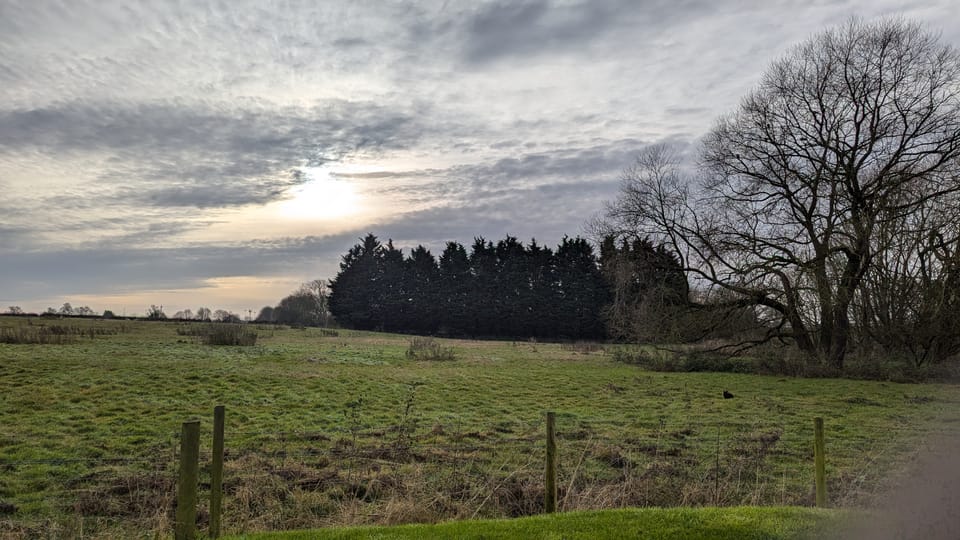
I'm not going to blog incessantly about my health. Partly because that would be much too depressing, but also because I want to make the most of my time and what it means, and not get too stuck in the meta and mechanical day to day. At the same time, I don't dare look forward or make plans too much right now, until I get a proper picture of how well or otherwise I'm responding to the treatment, but I'm preparing the ground mentally. So instead of looking forward, let's look back in time to November 2024.
I'd just left my previous job at a fully remote, American/global company, where I'd been for 5 years. It had been a wonderful way to feel like a global citizen, getting to know colleagues all over the world and travelling internationally. But despite performing well, working extremely hard and being highly thought of, my role had been moved around and undermined so much that I'd lost a clear sense of purpose, and I was feeling unconnected, burnt out and adrift.
I'd also been sitting in a cupboard (a fitted wardrobe converted into an office) for five years, not doing enough exercise and existing mostly as a digital avatar of myself. I kept describing the feeling to colleagues as existential crisis, because I knew something was wrong, and I needed to fix it. Fate intervened when the company offered us voluntary redundancy, which I accepted with few regrets.
My uncle, who'd worked for a local council for many years and had experienced similar burnouty feelings, had become a 'postie' (yes, it's the official term in our gender-inclusive era!) for the Royal Mail about six months previously. His description of it lit some kind of feebly glowing sense of enthusiasm and rightness in me. So I started work as a temporary parcel delivery driver for the Christmas period.
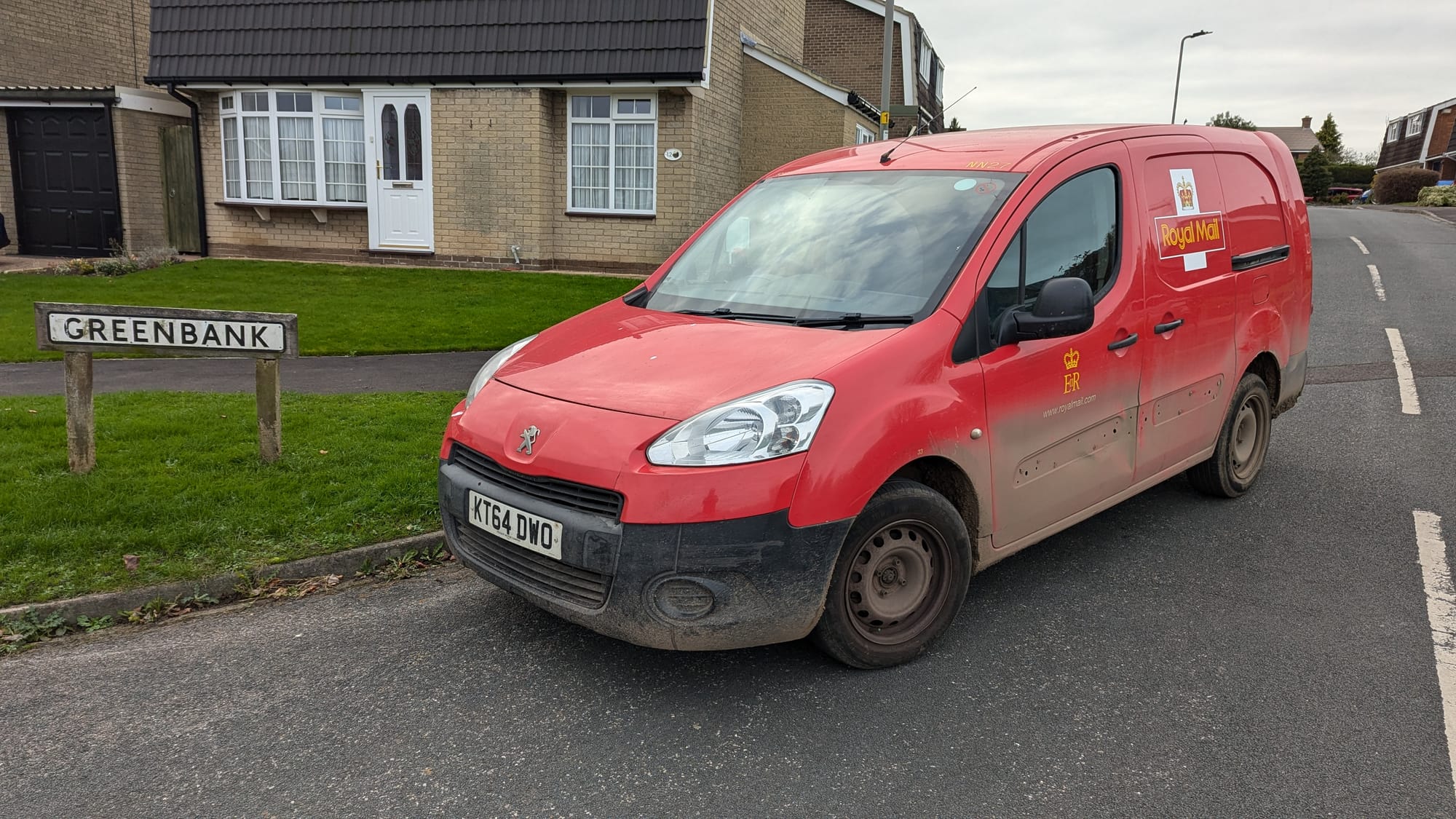
The Royal Mail recruit temporary parcel deliverers all over the country every winter, and they're sorely needed. Being physically able to do the job, and having a clean driving record, was all that was needed to get hired. I turned up at the Northallerton delivery office and I was sent off on my own with a van and parcels on my second day.
I consider Northallerton to be my home town. Even though we never actually lived in the town, we always lived 10-15 mins away. My grandparents lived there and we used the library and market every week. So I liked knowing the street pattern a little, and having the other posties be pleased with me learning things quickly made me feel like a real person rather than an impostor.
The temping job is less physically taxing than the full walking postie job. Being focused on parcels did mean I got in and out of the van hundreds of times a day compared to the posties working on foot with trolleys, and I had more heavy things to manhandle. But it involved less actual pavement pounding. I averaged between 15 and 25000 steps per day, whereas most posties go easily well beyond 30000. It was comfortable though, and I felt good on it.
One of the regulars said to me that it rains much less than you'd think. That's true. I'm sure the UK seems grey and damp to many international visitors but North Yorkshire in winter can be glorious in the fresh air and sharp white sunshine, and doing physical work keeps you warm. I enjoyed sending selfies to friends abroad who were tickled that I'd become Postman Pat.
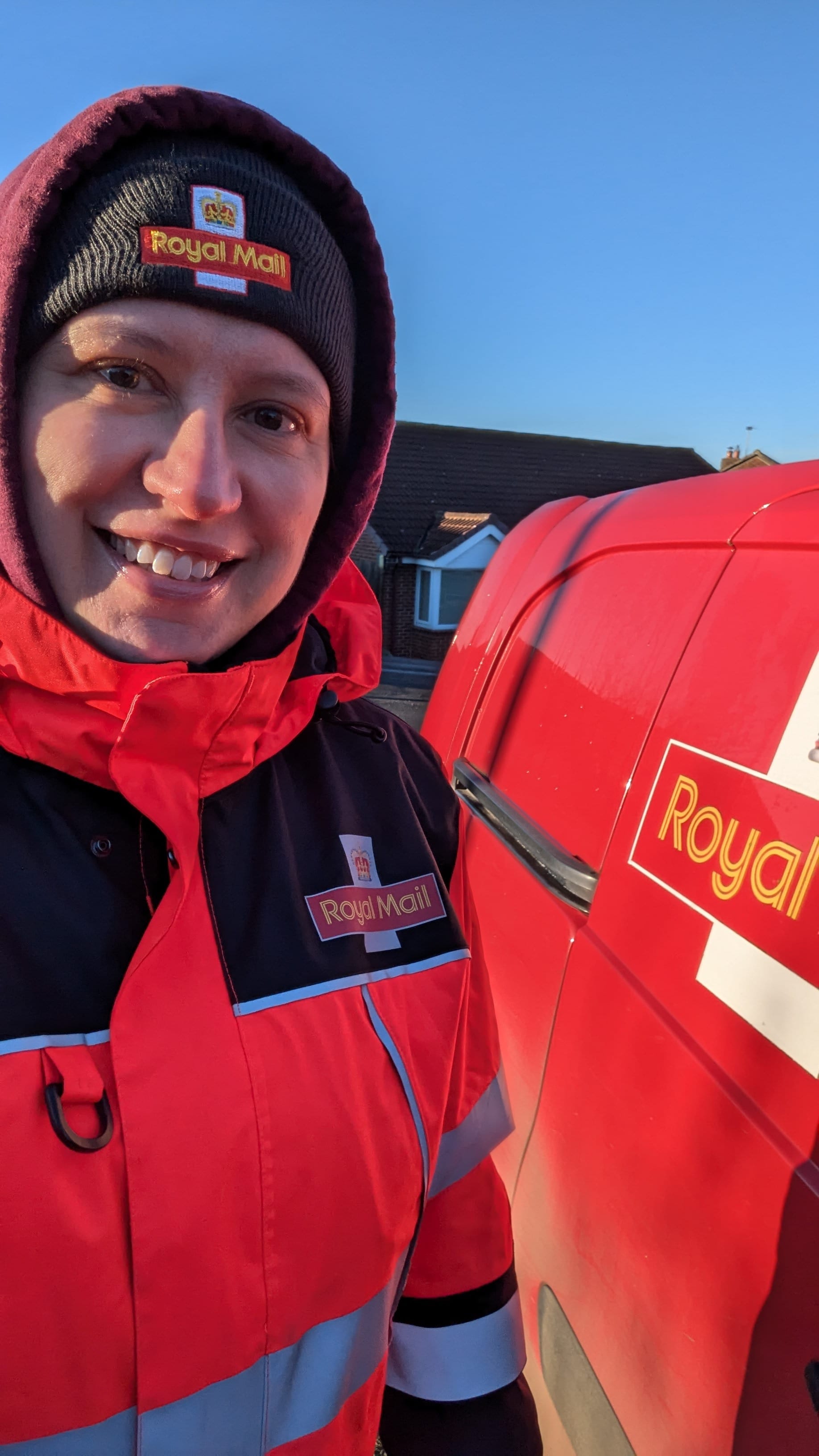
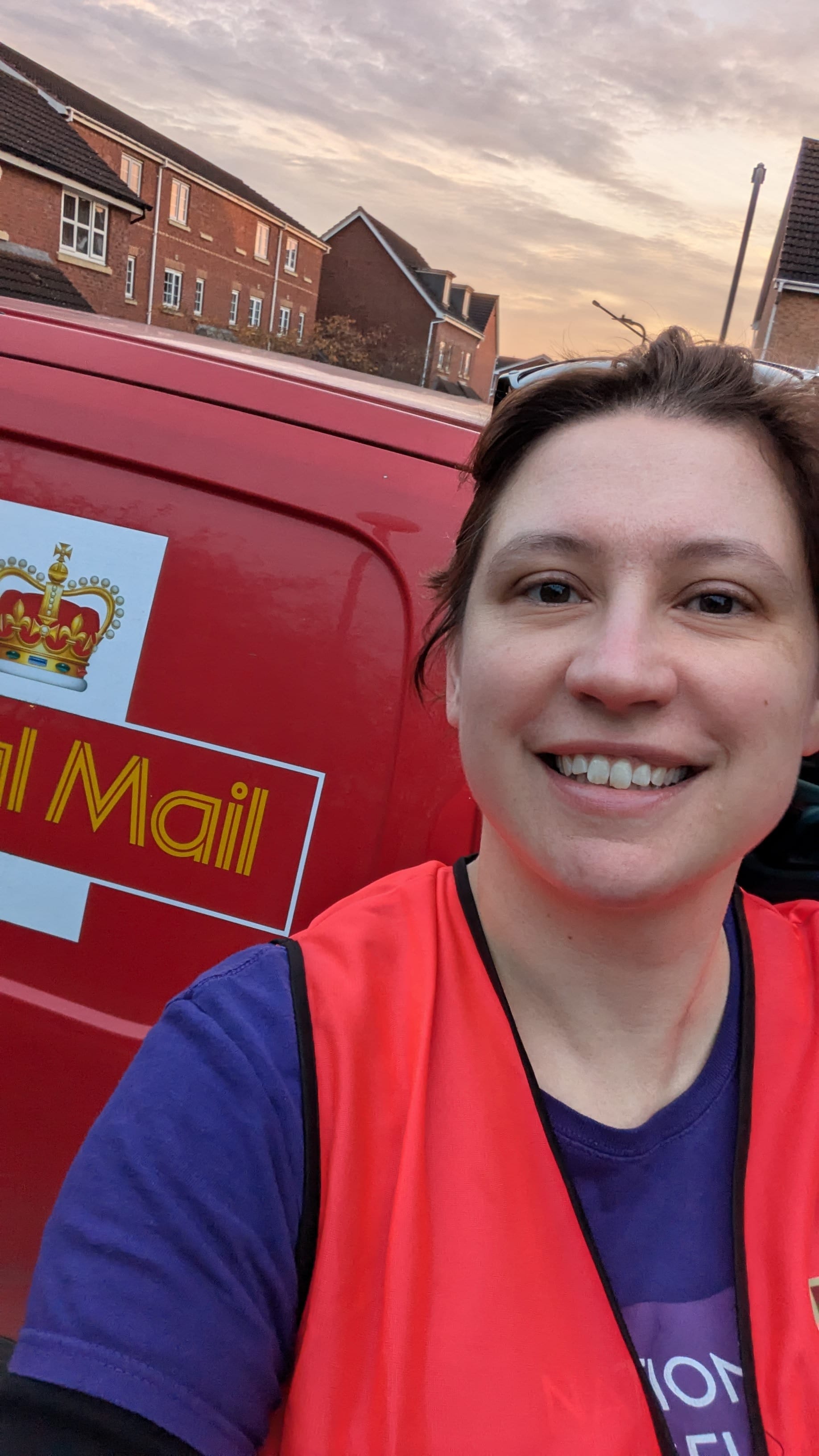
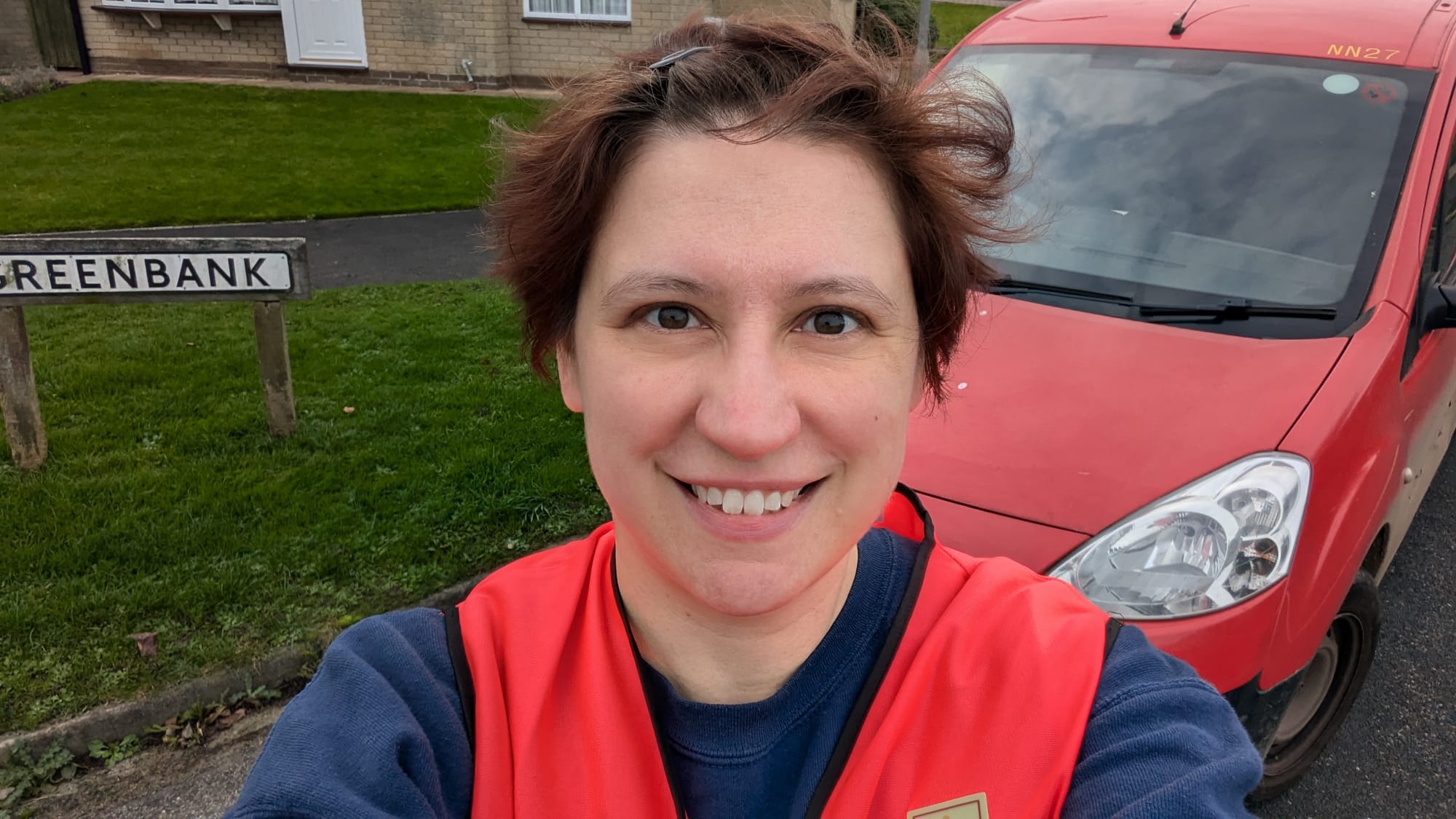
Selfies in the northern winter sunshine
Something I loved was exploring the town from the point of view of its domestic life. Delivering post means that you interact with people at home, while they're washing up, working, still in their pyjamas or cooking; you go through gates, up paths, round to back gardens, investigate people's sheds (to leave a parcel in their safe place!), meet their babies, dogs and cats. For a virtual avatar in need of human connection, these were tender things.
Posties were almost universally in their second or third career. I met photographers, teachers and more. And the gender aspect was interesting. There were several women posties (postwomen?) at the delivery office but it was clear I was still an unexpected sight for many customers. At one house I rang the bell and saw someone flustered fighting with a towel through the kitchen window. "Oh thank god you're a woman!" she exclaimed: "I was struggling to get covered up!" A little old lady was most concerned when I delivered a parcel on a dark night around 6pm. "Oh they do keep you out late, love!" And another was terribly upset that I'd carried something heavy up their drive. "If I'd known you were a woman I'd have got my husband to come and help you!"
It being Christmas, there was lots of joy. People being thrilled things had arrived happened all day long, and the constant flow of providing people with happiness does wonders for morale. Delivering fresh flowers is particularly nice. "Ooh wow! How lovely! Who can these be from!"
And you get familiar with all the different buildings that people call home, from flats to many different types, styles and ages of house, across all different social levels from deprivation to luxury (though mostly, Northallerton is on the comfortable end by UK standards). I loved learning different buildings and starting to identify 30s door frames, Victorian terraces, Georgian facades and art deco windows.
I also liked doing collections, which meant being handed a large ancient iron key to be used in a venerable red postbox and feeling very important.
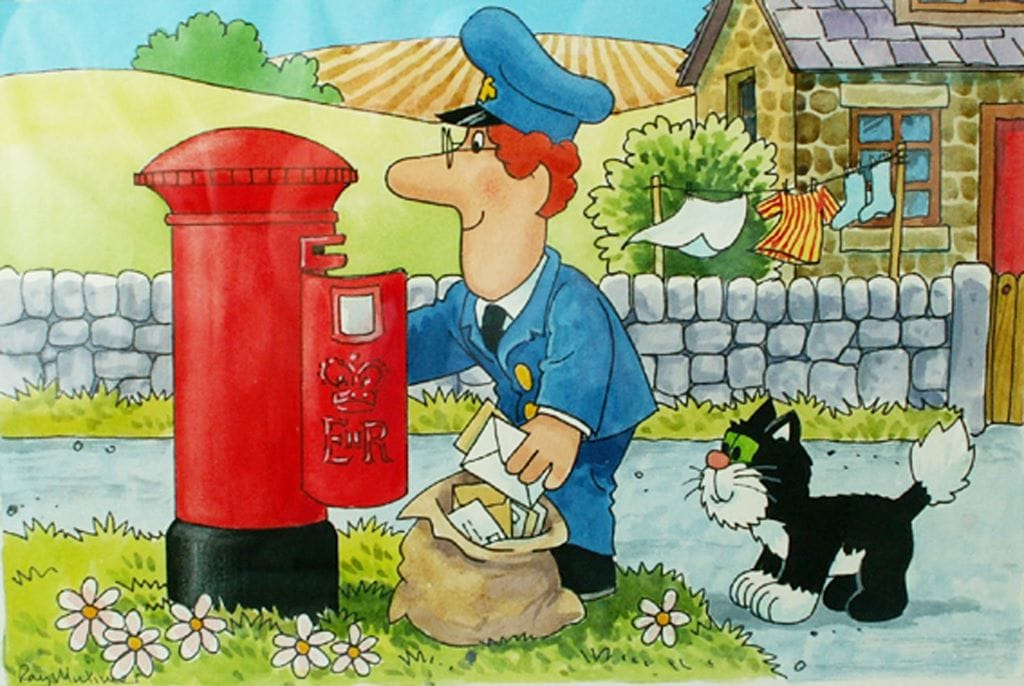
There's a complete autonomy to this work, which was lovely, as long as you deliver a certain number of parcels per day - so you do have to keep moving, but to your own schedule. You pop in to the office to scan out your next load, fill the van, go and deliver them, and go back and see if there's time in your shift to take another load.
Although the veteran posties mostly don't appreciate it, I liked the digital handheld scanner, the PDA (Personal Digital Assistant). It guides you for everything from packing the van in the most efficient way to a GPS-guided optimised route, all of which makes you fast and autonomous from day one, even if you don't know the street plan. Though, you get faster the more you familiarise yourself with handy places to park, avoiding nuisance one way systems and identifying where the PDA is being illogical and costing you time. This is the reason the veterans don't appreciate the PDA. I'm sure with experience your brain would scan the addresses and create an efficient mental route like London cabbies do.
I found there was more than enough to occupy my brain and I enjoyed the solitude of the work, and the space it gave for ruminating on interesting diversions like nature, people and architecture, and for greeting cats all day long.
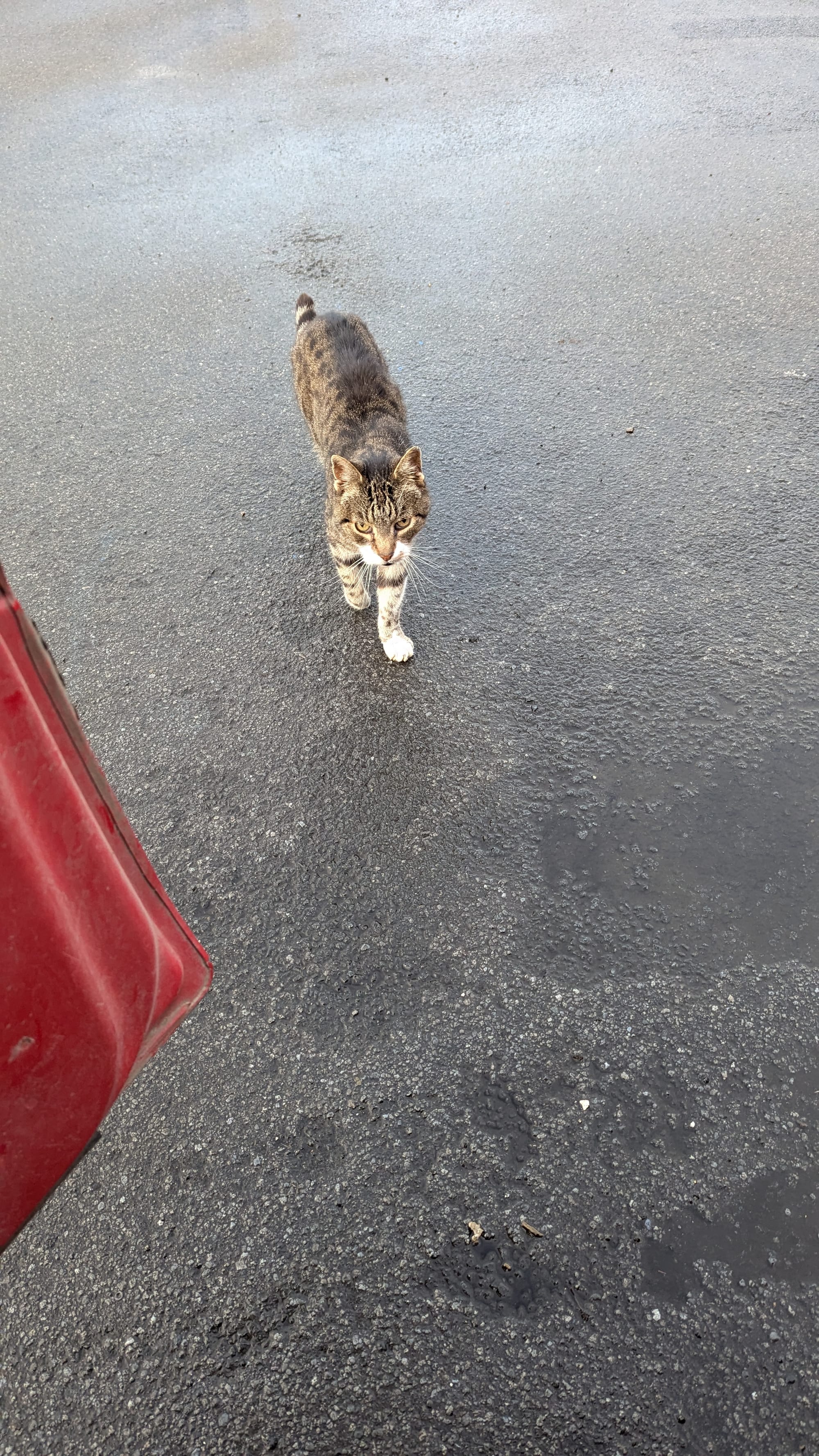
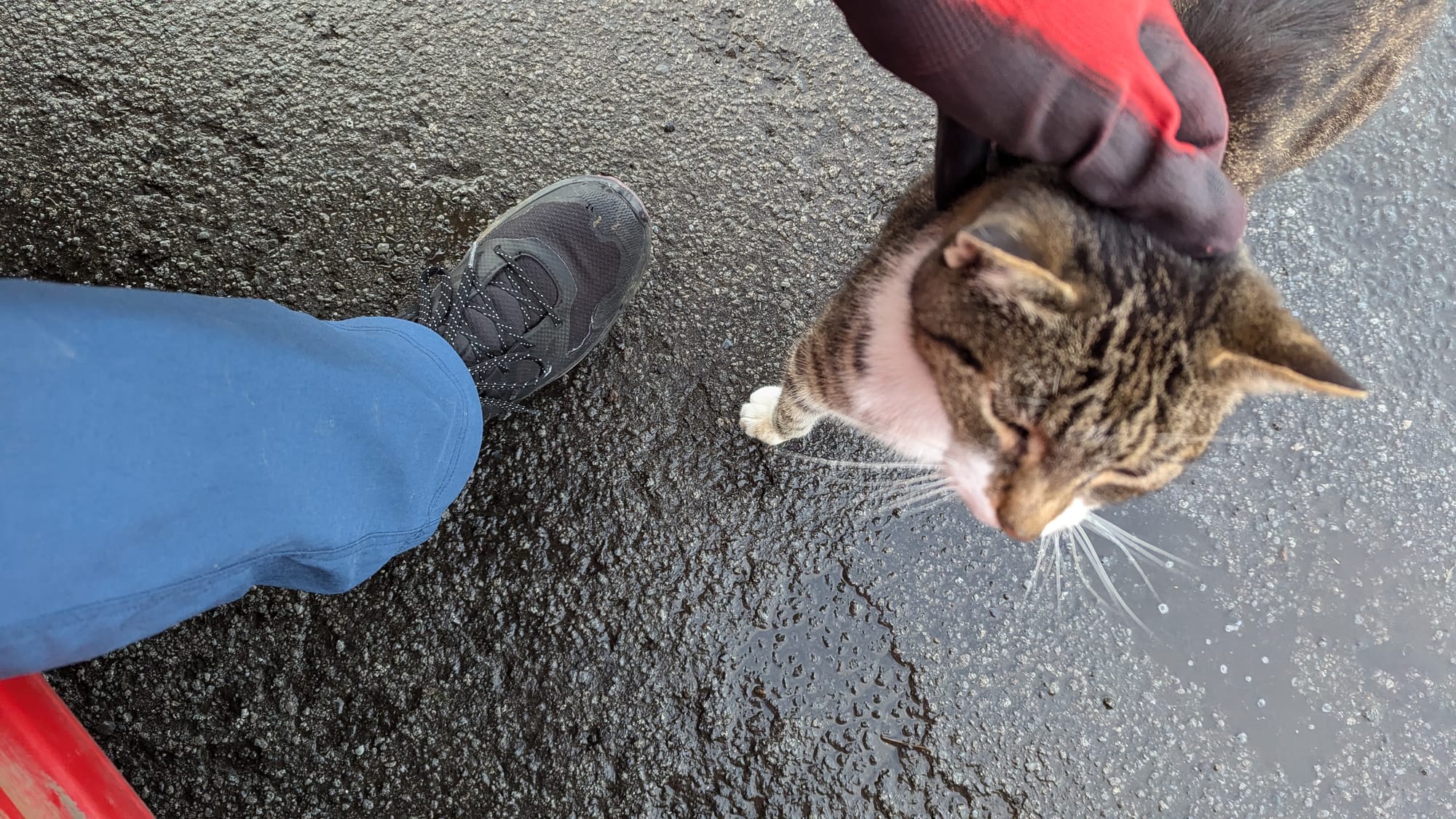
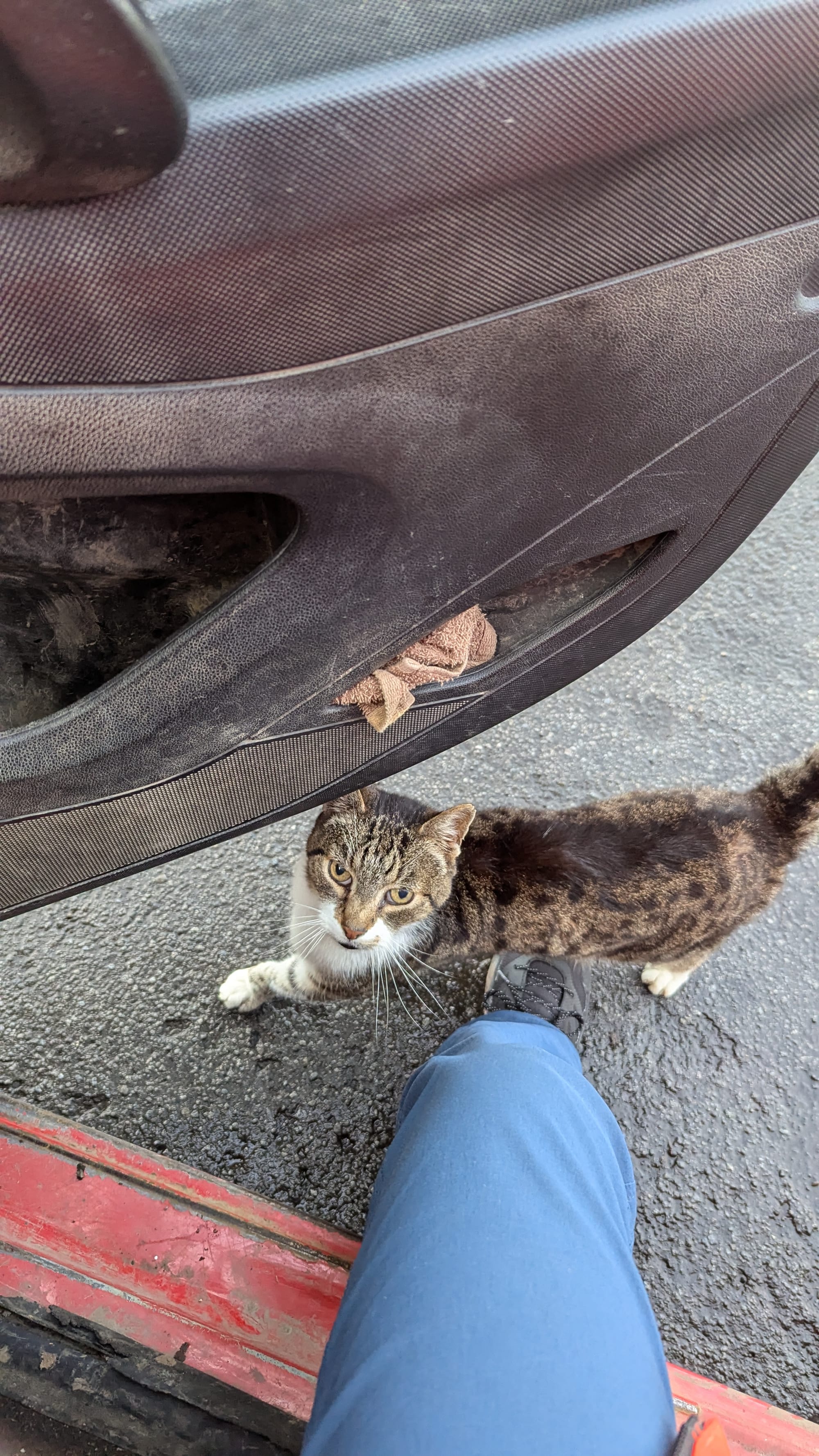
This is Buster (I heard his owner call him). I had the feeling he had positive associations with Royal Mail vans, as he tried to get in mine with me.
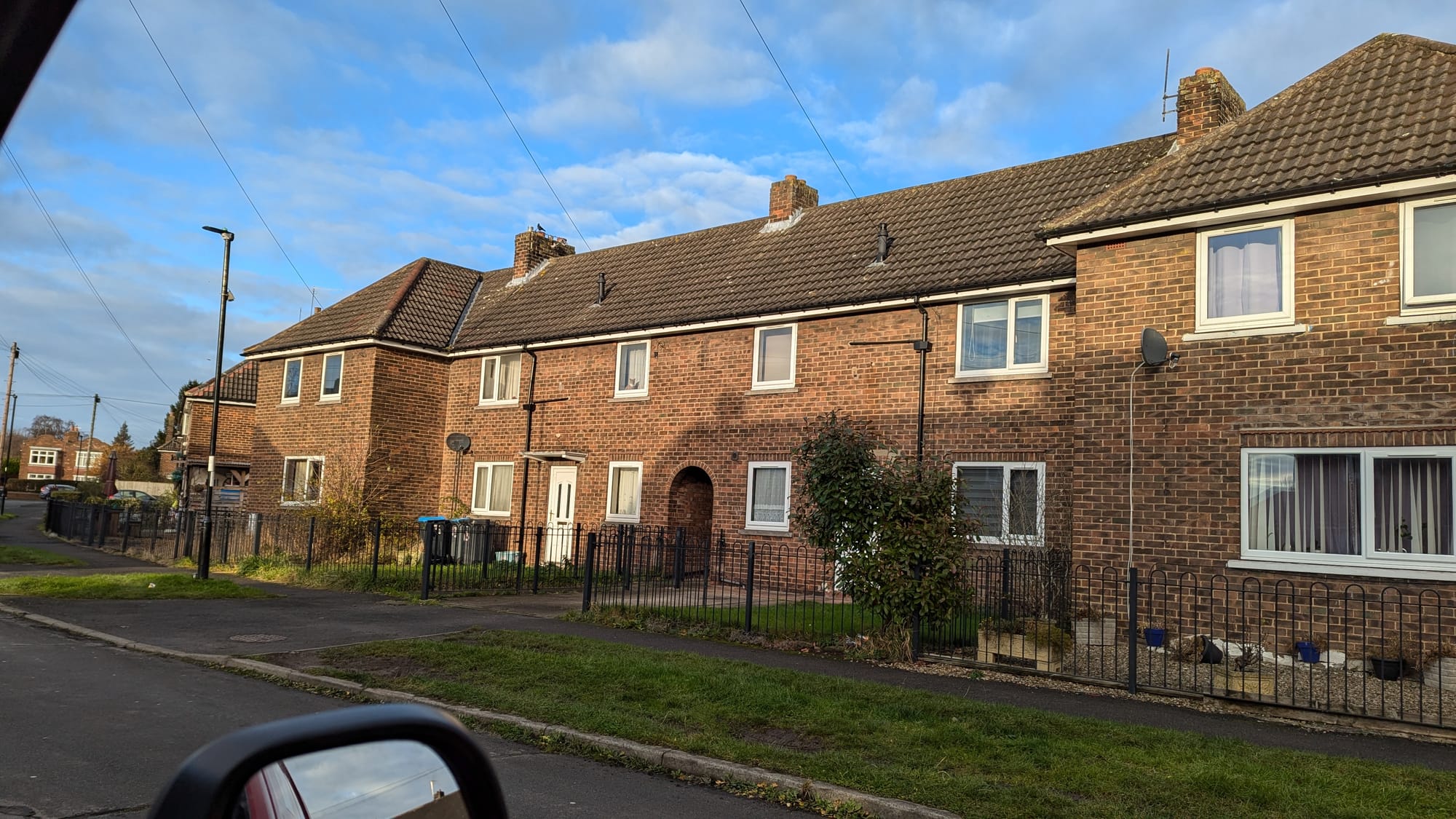
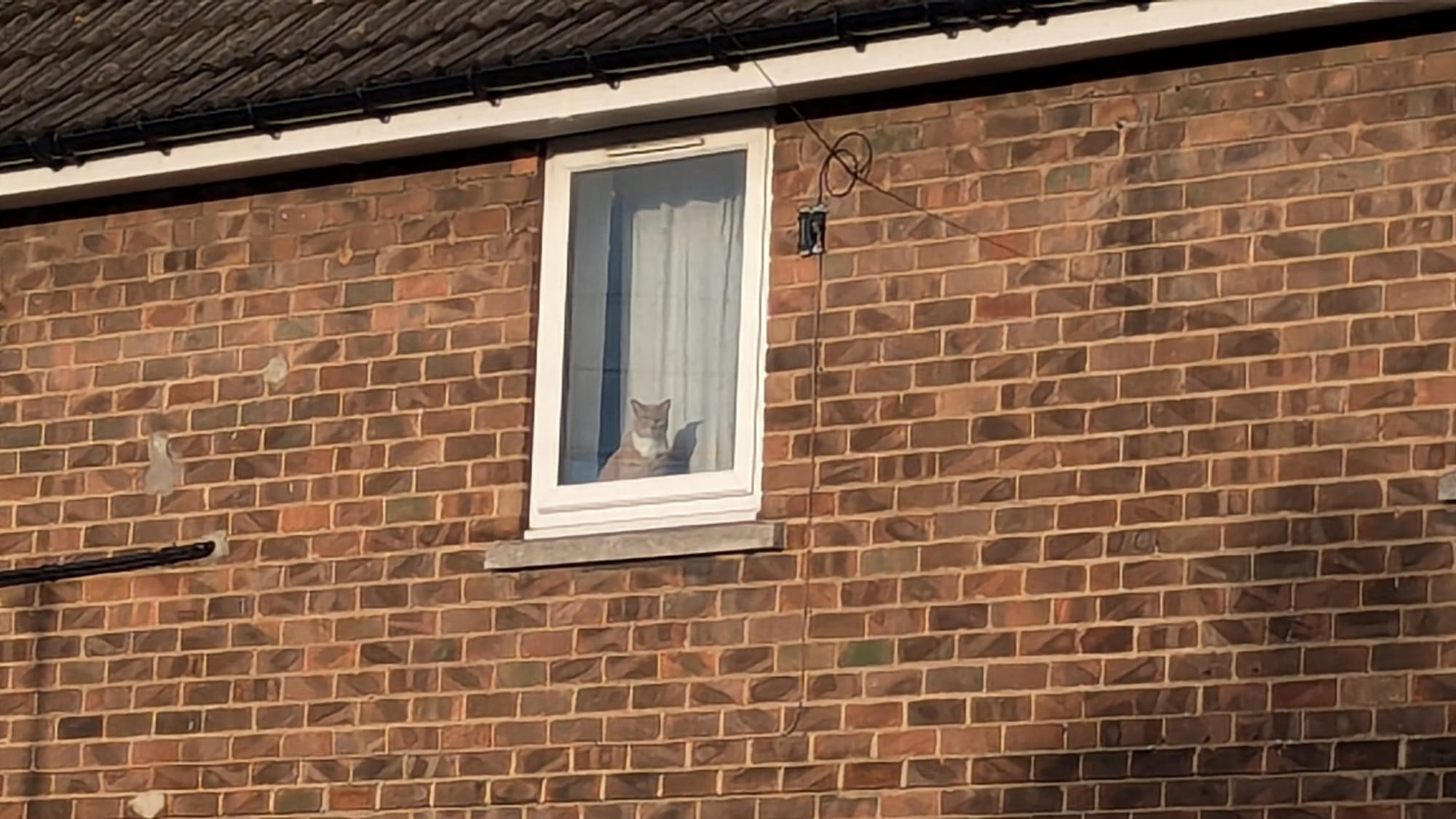
Often I'd spot cats observing me from windows.
I'm obviously romanticising and overthinking to some extent a role that I didn't do for very long, and which can be exhausting and thankless. But I did have fun. I felt like part of the fabric of society, a cog in the machine of how things work. Emotionally I felt a sense of homecoming, that I was treading the streets of my town and being a person in the real, physical world, in some sense that I'd allowed to get away from me while working in IT.
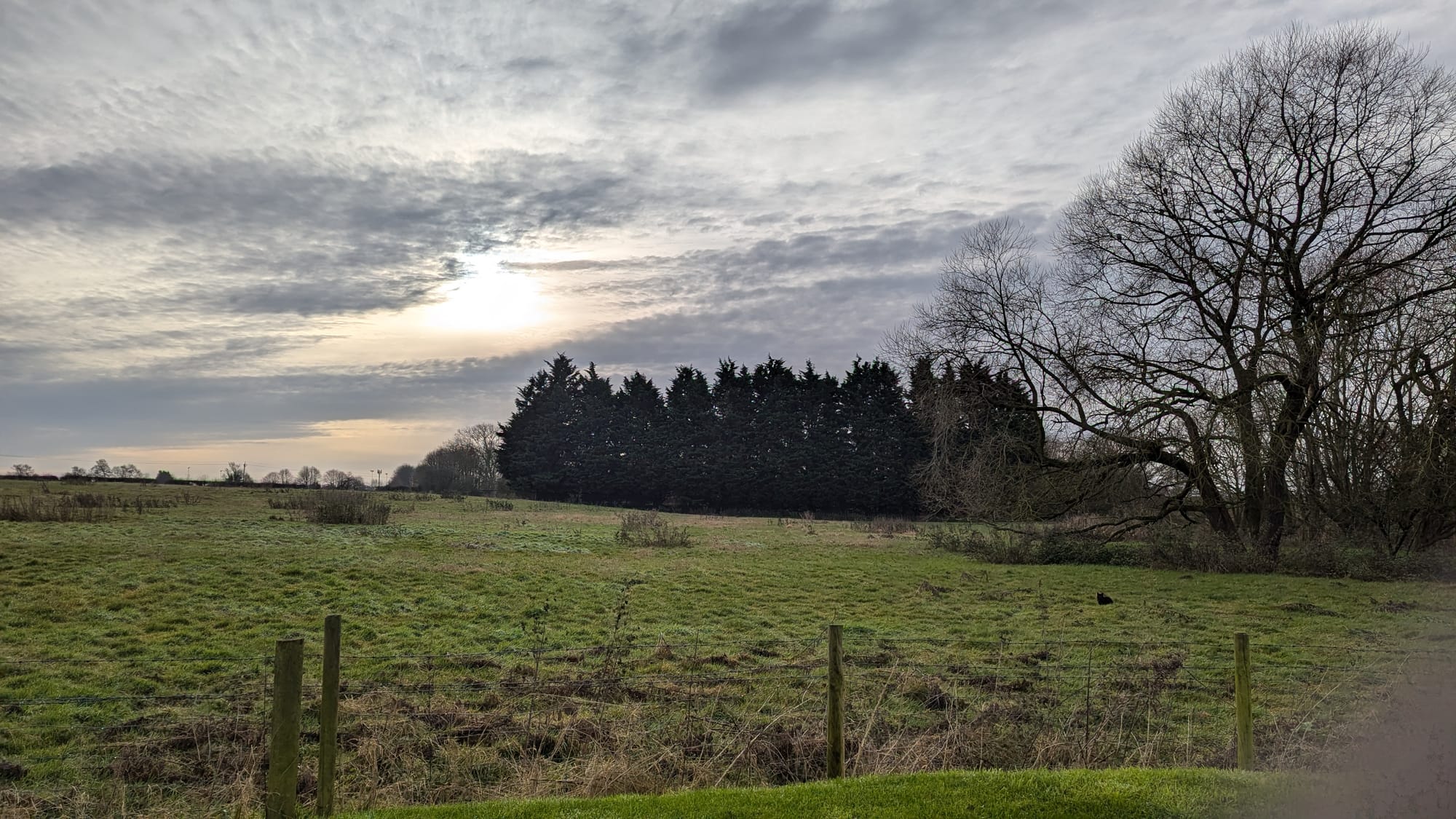
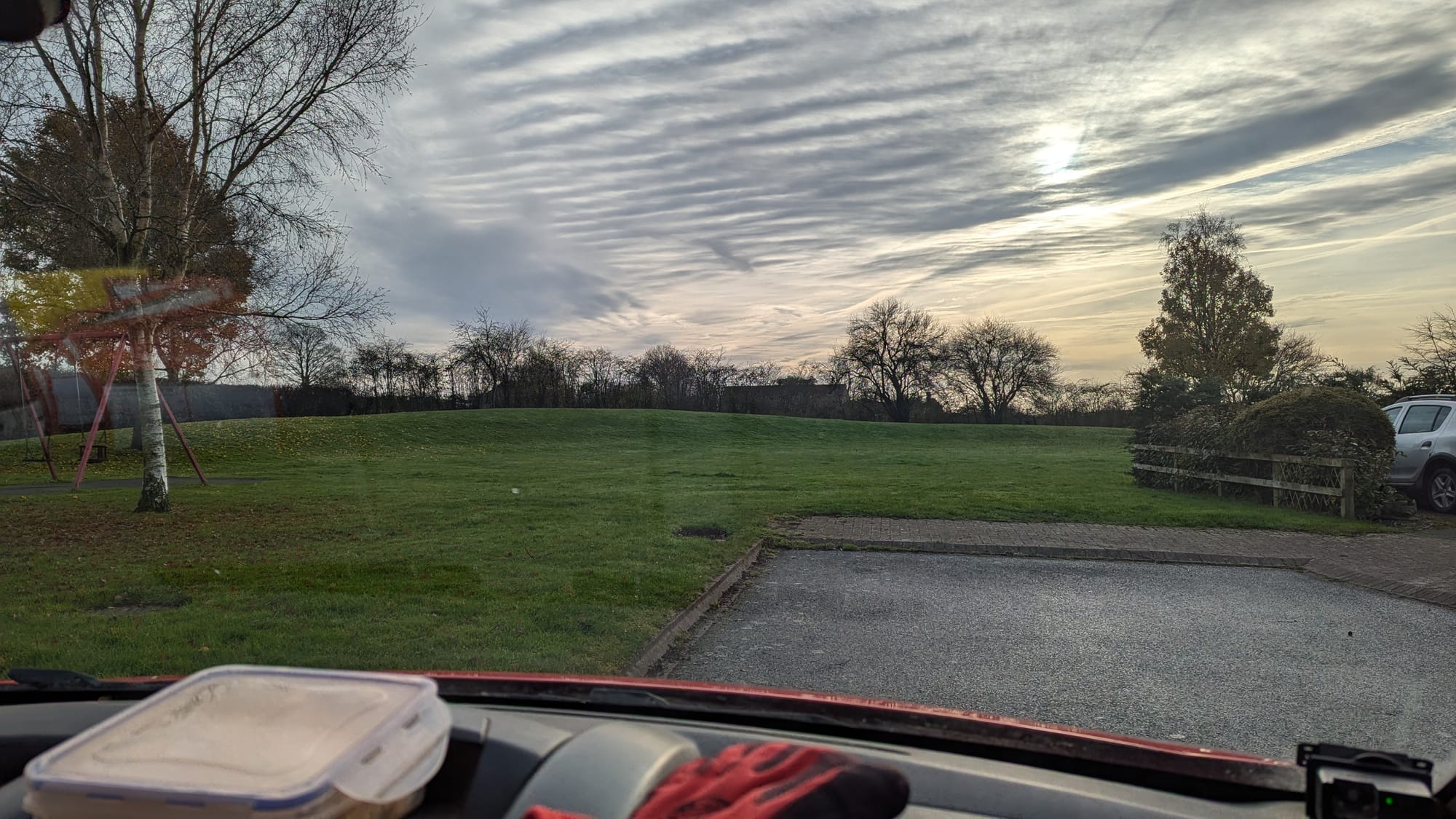
I worked for the Royal Mail for about 6 weeks, and stopped in early December. Even though it was such a short time, it cemented a few really important things for me.
One is that for work, I know I shouldn't become a virtual avatar person again. I want to work in the real world in some way. I think the more I connect with real things, the healthier I am. I'm wondering about how I could work in some area connected with heritage, nature or culture, or teaching or training, but in a way that's related to real things or that helps people in real world ways. Or even just provide a basic service that people need, and that connects us to one another in this weird network of society we've made for ourselves. I know this won't make me the same money that I was making when I was all strategic and global in my previous role. But it seems necessary.
Then, the other main takeaway is that my emphasis, in terms of travel and life experiences, has returned to a local focus. In the past few years via my former work, I've been privileged to visit New York, Washington DC, Denver; Montreal; Rotterdam and Amsterdam; Antwerp and Brussels; Reykjavík; Munich; Dublin. Some of these places were visited for meetups or conferences, and others were private travel I managed to squeeze in on my company-paid flights on the way to or from them.
In a personal capacity, I've also been on unforgettable and wonderful trips to Norway, Denmark, Sweden, Iceland and France in the last three years. I couldn't have afforded that much travel without being in that work role.
Now, our financial means are catastrophically dwindled, but it's ok. The travel I've done honestly feels like enough. There's a bit of an affectionate running joke in our family because my bucket list is really just doing more of things I already like. I don't feel the need to go to more far-flung places, and my travel hopes are honestly mostly just to visit places I've already been to and liked. I have been hoping to maybe visit Iceland again in 2026 to see the total eclipse, but that may be a pipe dream (we'll see depending on finances and health). Anyway, I've actually already seen a total eclipse, so this is mainly for my children. And I'd go back to Norway if we can some day, and various bits of northern mainland Europe still appeal.
Otherwise, I am very happy indeed to stay in the UK and make sure I appreciate it fully - I want to see more of Scotland particularly. I chose the name "Northern Words" for a reason - northernness is part of who I am, and I want to embrace that now.
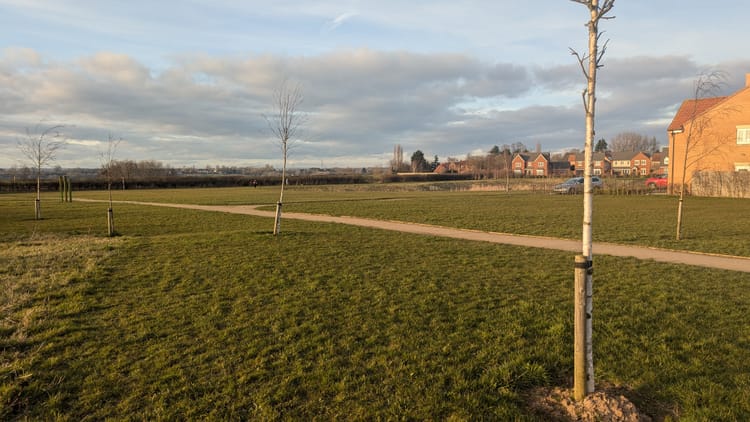
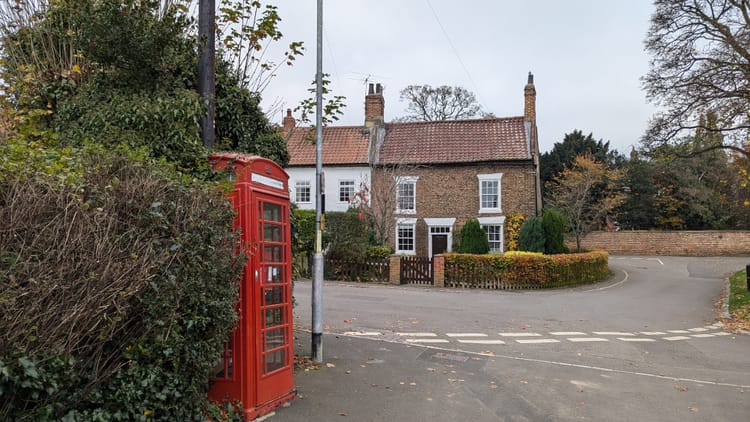
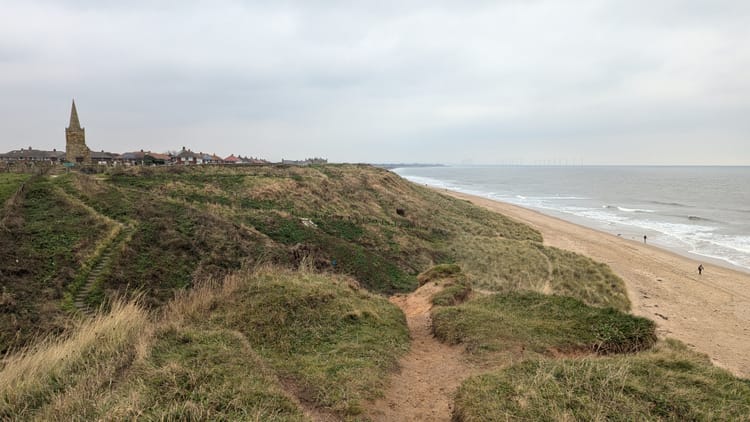
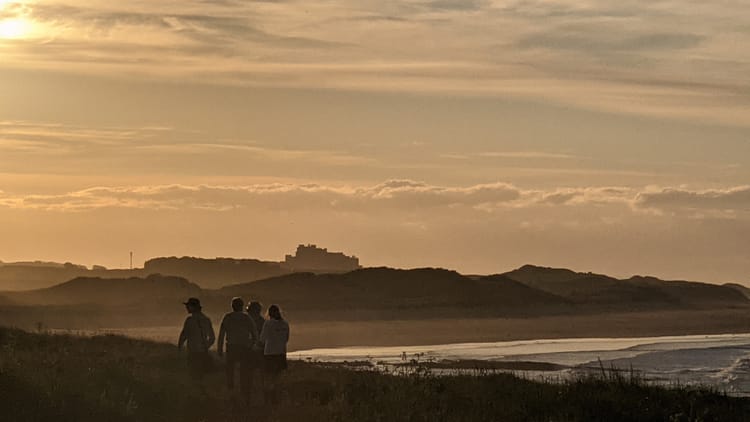
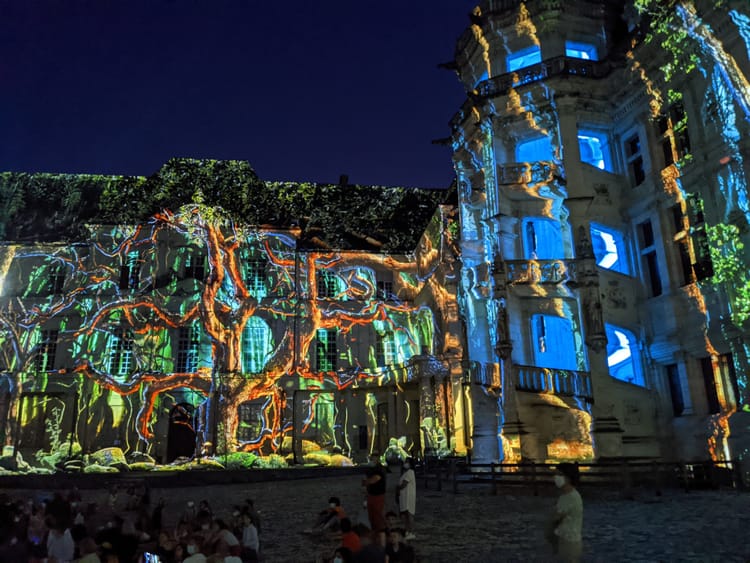
Member discussion